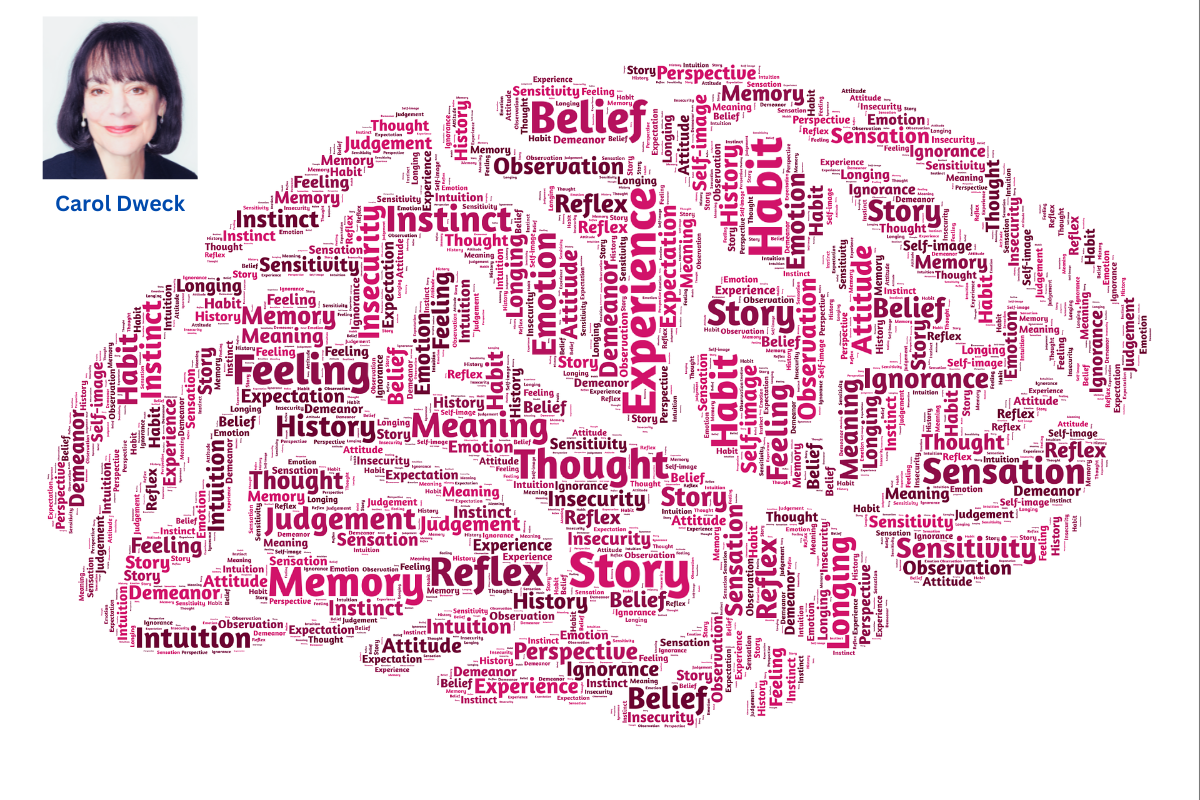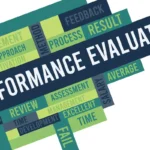The concept of a growth mindset, inspired by psychologist Carol Dweck’s research, has gained significant traction in recent years as a powerful tool for personal development and success. Embracing the principles of a evolving mindset can not only lead to increased resilience and motivation but also pave the way for continuous learning and improvement in various aspects of life. By understanding and applying these principles in your daily life, you can unlock your full potential and achieve your goals more effectively.
One crucial aspect of adopting a growth mindset is the belief that abilities and intelligence are not fixed but can be developed through dedication and hard work. This foundational principle challenges the notion that talent alone determines success and instead emphasizes the importance of effort, learning from failures, and persisting in the face of challenges. By internalizing this belief, individuals can cultivate a sense of resilience and a willingness to embrace setbacks as opportunities for growth.
In practical terms, applying Progressive Attitude principles in your daily life involves cultivating a mindset shift towards embracing challenges rather than shying away from them. When faced with a new task or goal, instead of being deterred by the fear of failure, strive to see it as an opportunity to learn and improve. By reframing challenges as stepping stones to growth, you can approach them with a sense of curiosity and determination, fostering a mindset that values effort and perseverance over innate talent.
Additionally, seeking out constructive feedback and learning from criticism is essential for personal growth and development. Embracing a evolving mindset means viewing feedback as a valuable source of information that can help you identify areas for improvement and refine your skills. Instead of taking criticism personally, strive to see it as a pathway to growth and an opportunity to enhance your abilities.
Another key aspect of applying growth mindset principles in daily life is cultivating a sense of resilience in the face of obstacles. Challenges and setbacks are inevitable on the journey toward personal growth, but how you respond to them can make a significant difference. By reframing setbacks as learning opportunities and refraining from dwelling on failures, you can maintain a positive outlook and persevere in the face of adversity.
Moreover, fostering a love for learning and continuous improvement is at the core of a growth mindset. Embrace new experiences, acquire new skills, and challenge yourself to step outside your comfort zone regularly. By committing to a lifelong journey of growth and development, you can expand your horizons, discover new passions, and cultivate a sense of fulfillment in your daily life.
Integrating growth mindset Dweck principles into your daily life can be a transformative journey towards personal development and success. By embracing challenges, seeking feedback, fostering resilience, and prioritizing continuous learning, you can unlock your full potential and cultivate a mindset that empowers you to overcome obstacles and achieve your goals. Embrace the power of Improvement-Oriented Mindset and embark on a journey of self-discovery and growth that will shape your life positively.
Understanding the Core Principles of a Growth Mindset
Embracing a growth mindset can profoundly impact your daily life by shaping your attitudes, behaviors, and overall approach to challenges. Dr. Carol S. Dweck, a renowned psychologist, introduced the concept of growth mindset, emphasizing the belief that abilities and intelligence can be developed through dedication and hard work. Understanding the core principles of a Progressive Attitude is essential to unlock your full potential and achieve personal growth and success.
Importance of a Growth Mindset
A growth mindset is based on the belief that skills and talents can be cultivated over time with effort and perseverance. This outlook stands in contrast to a fixed mindset, where individuals believe that their abilities are static and predetermined. By adopting a growth mindset, you open yourself up to endless possibilities for learning and improvement. Challenges are viewed as opportunities for growth rather than insurmountable obstacles.
Embracing Challenges
One of the fundamental principles of a Progressive Attitude is to embrace challenges wholeheartedly. Instead of shying away from difficulties or setbacks, individuals with a growth mindset see them as chances to learn and develop new skills. By stepping out of your comfort zone and taking on challenges, you not only expand your capabilities but also increase your resilience and determination.
Persistence and Effort
In a growth mindset framework, the emphasis is placed on the importance of persistence and effort in achieving success. Rather than being discouraged by initial failures or setbacks, individuals with a Improvement-Oriented Mindset see them as opportunities to learn and improve. By exerting continuous effort and staying committed to your goals, you can enhance your skills and reach new heights of achievement.
Learning from Feedback
Feedback, whether positive or constructive, is a valuable tool for growth and development. Individuals with a growth mindset welcome feedback as a means to gain insights into their strengths and areas for improvement. By actively seeking and incorporating feedback into your learning process, you can refine your skills, broaden your knowledge, and enhance your performance over time.
Cultivating a Positive Attitude
Maintaining a positive attitude is essential in fostering a growth mindset. By approaching challenges with optimism and resilience, you can navigate obstacles more effectively and persist in the face of adversity. Cultivating a mindset that focuses on growth and development enables you to harness your inner potential and achieve long-term success in various areas of your life.
Setting Goals and Taking Risks
Setting ambitious yet attainable goals is a cornerstone of a growth mindset. By establishing clear objectives and creating a roadmap for achieving them, you can stay focused and motivated on your journey toward personal growth and success. Additionally, taking calculated risks allows you to step outside your comfort zone, explore new opportunities, and push your boundaries to discover your full potential.
Implementing Growth Mindset in Your Daily Life
The principles of a growth mindset into your daily routine can have a transformative effect on your life. By embracing challenges, valuing effort and persistence, seeking feedback, cultivating a positive attitude, setting goals, and taking risks, you can enhance your learning, development, and overall growth. Remember that growth is a continuous process, and by adopting a growth mindset, you empower yourself to achieve greater heights and unlock new possibilities in all aspects of your life.
Overcoming Challenges and Obstacles with a Growth Mindset
Maintaining a growth mindset is crucial when facing challenges and obstacles in life. Embracing the principles outlined by psychologist Carol Dweck can help individuals navigate difficult situations with resilience and determination. By fostering a growth mindset, individuals can cultivate a belief in their ability to learn and grow from setbacks, ultimately leading to personal and professional development.
One key aspect of applying growth mindset principles in daily life is the willingness to embrace challenges as opportunities for growth. Instead of shying away from difficult tasks, individuals with a growth mindset see them as chances to learn and improve. By reframing challenges in this way, individuals can approach them with a sense of optimism and determination, knowing that their efforts will lead to personal development.
Furthermore, adopting a growth mindset involves recognizing the power of effort and perseverance. Instead of believing that abilities are fixed, individuals with a growth mindset understand that hard work and dedication can lead to improvement. By putting in the effort and persisting in the face of obstacles, individuals can achieve success and overcome challenges that may have seemed insurmountable.
In addition, feedback is a valuable tool for growth and development. Individuals with a growth mindset welcome feedback as an opportunity to learn and grow, rather than as criticism of their abilities. By receiving feedback with an open mind and using it to make improvements, individuals can continue to progress and develop their skills.
Moreover, cultivating a growth mindset involves maintaining a positive attitude in the face of setbacks. Instead of viewing failures as indicators of inadequacy, individuals with a growth mindset see them as learning experiences that can pave the way for future success. By staying optimistic and resilient in the face of adversity, individuals can bounce back from setbacks and continue to pursue their goals.
Another important aspect of applying growth mindset principles is the concept of learning from the success of others. By celebrating the achievements of peers and colleagues, individuals can gain inspiration and insights that can help them on their own journey toward growth and development. By cultivating a spirit of collaboration and learning from others, individuals can expand their own horizons and reach new levels of success.
Embracing a growth mindset is essential for overcoming challenges and obstacles in life. By adopting the principles outlined by Carol Dweck, individuals can develop a belief in their ability to learn and grow, even in the face of adversity. By seeing challenges as opportunities for growth, valuing effort and perseverance, welcoming feedback, maintaining a positive attitude, and learning from the success of others, individuals can navigate difficult situations with resilience and determination. Ultimately, a growth mindset empowers individuals to achieve personal and professional success, no matter what obstacles may arise.
Cultivating Resilience and Perseverance Through Growth Mindset
When it comes to personal growth and development, cultivating resilience and perseverance through a growth mindset is key. Embracing the principles outlined by Carol Dweck can have a profound impact on how we approach challenges and setbacks in our daily lives.
Understanding Growth Mindset Principles
In order to apply growth mindset principles in your daily life, it’s essential to first understand what this mindset encompasses. A growth mindset is the belief that intelligence, abilities, and talents can be developed over time through dedication, hard work, and perseverance. This is in contrast to a fixed mindset, which assumes that our qualities are set in stone and cannot be changed.
Embracing Challenges
One of the fundamental aspects of a growth mindset is the willingness to embrace challenges. Instead of shying away from difficulties, individuals with a growth mindset see challenges as opportunities for growth and learning. By reframing challenges as chances to improve and develop new skills, you can approach them with a sense of determination and curiosity.
Learning from Feedback
Feedback, whether positive or negative, is a valuable tool for growth. Those with a growth mindset see feedback as constructive guidance that can help them improve. Instead of taking feedback personally, view it as a way to identify areas for development and enhancement. By incorporating feedback into your personal growth journey, you can continuously refine your skills and abilities.
Cultivating Persistence
Persistence is a hallmark trait of individuals with a growth mindset. In the face of obstacles and setbacks, those embracing this mindset persevere with determination and resilience. They understand that success is not always immediate and that setbacks are a natural part of the learning process. By cultivating a spirit of persistence, you can navigate challenges with resilience and unwavering resolve.
Applying Growth Mindset Principles in Daily Life
So, how can you apply growth mindset principles in your daily life? Here are some strategies to help you integrate these principles into your routine:
- Set Growth-Oriented Goals: Instead of focusing solely on outcomes, set goals that emphasize learning and development. View your goals as opportunities to grow and improve, rather than fixed endpoints.
- Embrace Challenges: Seek out opportunities that push you out of your comfort zone. Embracing challenges can help you expand your skills and capabilities.
- Learn from Setbacks: When faced with setbacks, reflect on what you can learn from the experience. Use setbacks as opportunities to refine your approach and grow stronger.
- Cultivate a Positive Mindset: Maintain a positive outlook on your abilities and potential for growth. By believing in your capacity to improve, you can approach challenges with confidence and resilience.
By incorporating these strategies into your daily life, you can cultivate resilience and perseverance through a growth mindset. Embrace challenges, learn from feedback, cultivate persistence, and apply growth mindset principles in all aspects of your personal and professional journey.
Fostering a Growth Mindset Culture in Personal and Professional Settings
Fostering a growth mindset culture in personal and professional settings is essential for personal development and success. Embracing the principles outlined by psychologist Carol Dweck can lead to a positive shift in mindset, allowing individuals to approach challenges with resilience, learn from failures, and ultimately achieve their goals. By understanding how to apply these principles in daily life, one can cultivate a mindset that values effort, growth, and continuous learning.
Understanding Growth Mindset Principles
To foster a growth mindset culture, it is crucial to understand the core principles outlined by Carol Dweck. In a growth mindset, individuals believe that their abilities and intelligence can be developed through dedication and hard work. This perspective contrasts with a fixed mindset, where traits are seen as innate and unchangeable. Embracing a growth mindset involves valuing learning, accepting challenges, persisting in the face of setbacks, and seeing effort as a path to mastery.
Embracing Challenges and Learning from Failures
In both personal and professional settings, challenges are inevitable. Instead of avoiding them out of fear of failure, individuals with a growth mindset embrace challenges as opportunities for growth. By stepping out of one’s comfort zone and taking on challenges, one can develop new skills, expand capabilities, and build resilience. Moreover, viewing failures as learning experiences rather than insurmountable obstacles is crucial in fostering a growth mindset culture. Each setback presents an opportunity to reflect, learn, and grow stronger.
Cultivating a Culture of Continuous Improvement
To apply growth mindset principles in daily life, it is essential to cultivate a culture of continuous improvement. This involves seeking feedback from others, being open to new perspectives, and actively pursuing learning opportunities. In a professional setting, encouraging colleagues to share knowledge, collaborate on projects, and provide constructive feedback can foster a growth-oriented environment where individuals thrive. Similarly, in personal endeavors, seeking out experiences that challenge and stimulate growth can lead to personal development and self-improvement.
Setting Goals and Embracing Effort
Setting meaningful goals is integral to fostering a growth mindset culture. By establishing clear objectives, individuals can focus their efforts and energies on specific outcomes. However, it is essential to emphasize the journey toward achieving these goals rather than just the end result. Embracing effort as a pathway to success shifts the focus from innate talent to hard work and determination. Recognizing that progress takes time and dedication encourages individuals to persevere in the face of obstacles and setbacks.
Celebrating Growth and Success
In both personal and professional settings, celebrating growth and success is vital in nurturing a growth mindset culture. Acknowledging achievements, milestones, and progress reinforces the value of effort and perseverance. By recognizing the importance of continuous learning and improvement, individuals are motivated to continue growing and expanding their capabilities. Celebrating both personal and collective successes fosters a positive and empowering environment where individuals are inspired to reach their full potential.
Fostering a growth mindset culture in personal and professional settings requires a commitment to learning, embracing challenges, cultivating continuous improvement, setting goals, valuing effort, and celebrating growth and success. By applying the principles outlined by Carol Dweck in daily life, individuals can develop a mindset that promotes resilience, growth, and achievement. Embracing a growth mindset not only enhances personal development but also contributes to creating a positive and empowering environment where individuals thrive and succeed.
Conclusion
The principles of a growth mindset into your daily life can lead to profound personal development and success. By understanding the core principles of a growth mindset, such as embracing challenges, persisting in the face of setbacks, and seeing effort as the path to mastery, you can cultivate a mindset that thrives on continuous growth and improvement.
When faced with challenges and obstacles, a growth mindset enables you to view these hurdles as opportunities for learning and growth. Instead of being discouraged by setbacks, you can see them as valuable lessons that propel you forward on your journey towards success. By reframing challenges as opportunities for growth, you can overcome obstacles with resilience and determination.
Cultivating resilience and perseverance through a growth mindset is essential for navigating the ups and downs of life. By developing a mindset that embraces challenges and sees failures as stepping stones to success, you can build the resilience needed to weather life’s storms. Through perseverance and a belief in your ability to grow and improve, you can face adversity with courage and confidence.
In personal and professional settings, fostering a growth mindset culture can lead to increased creativity, collaboration, and innovation. By encouraging a mindset that values learning, effort, and growth, you can create an environment where individuals are empowered to take on new challenges and push the boundaries of what is possible. In a growth mindset culture, mistakes are seen as opportunities for learning, feedback is embraced as a tool for growth, and success is viewed as a result of hard work and perseverance.
By applying the principles of a growth mindset in your daily life, you can unlock your full potential and achieve greater levels of personal and professional success. Through understanding the core principles of a growth mindset, overcoming challenges and obstacles with resilience, cultivating perseverance, and fostering a growth mindset culture, you can embark on a journey of continuous growth and development. Embrace challenges, learn from setbacks, and believe in your ability to grow and improve – with a growth mindset, the possibilities are endless.
These references provide valuable insights into the principles of a growth mindset and how they can be applied in daily life :
- “Mindset: The New Psychology of Success” by Carol S. Dweck
- “Grit: The Power of Passion and Perseverance” by Angela Duckworth
- “The Power of Yet” by Esther Wojcicki










